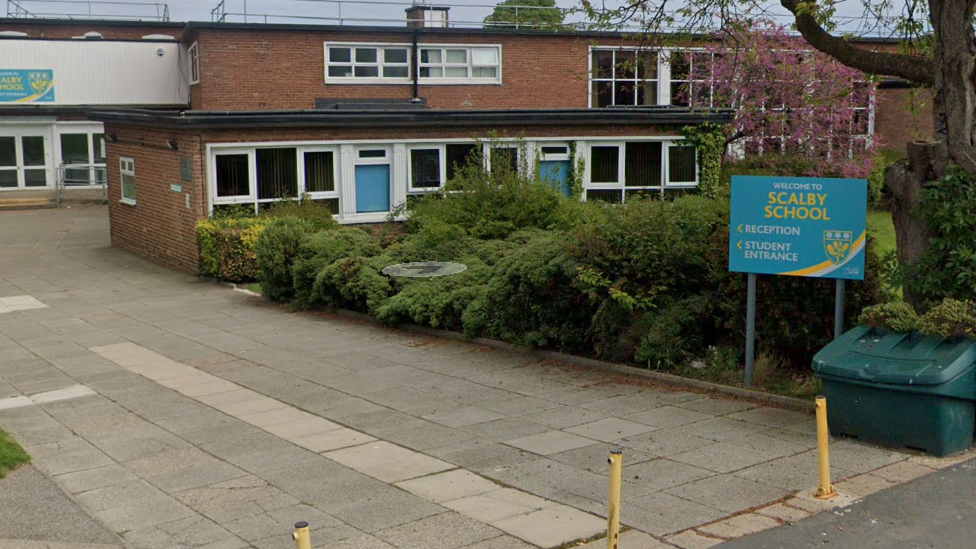Scalby School: Two-thirds of site closed by crumbing concrete
- Published
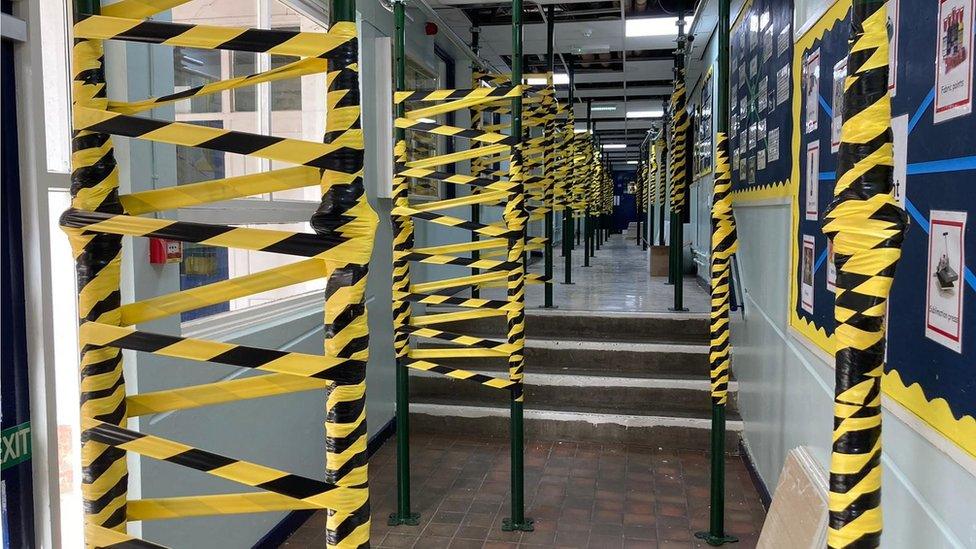
Support poles are being used to hold up ceiling in the school, where the roof was found to contain Raac
Just days before the start of the new academic year plans to reopen Scalby School, in Scarborough, were thrown into disarray following changes to national guidance around the safety of reinforced autoclaved aerated concrete (Raac).
The school was forced to push back its first day of term by almost a week and close off about two-thirds of its buildings. Now, with the majority of pupils back on site, BBC Look North went to speak to those affected.
For 11-year-old Elizabeth Tuesday 5 September was due to be an exciting, if a little daunting, day in her life as she made the move from junior school to senior school.
She had expected to be among about 1,000 pupils turning up at the gates of Scalby School ready to start a new term.
But when the directive came from government that all schools must close buildings and rooms where Raac had been detected unless safety measures were in place her excitement turned to disappointment.

Elizabeth's start to the new school year was delayed when the site was ordered to close
"I was really upset because the night before [I was supposed to start school] I didn't get any sleep, I was so excited," she said.
"Then I found out and I was really upset."
Elizabeth was one of about 200 pupils due to start Year 7 that day.
Now, those new pupils are being bussed to a different school in the seaside town to receive their education.
Charlotte, the mum of another Year 7 student, said this meant some teaching time would be lost, adding: "Who knows how long it is going to go on for? You don't know how to feel about it."
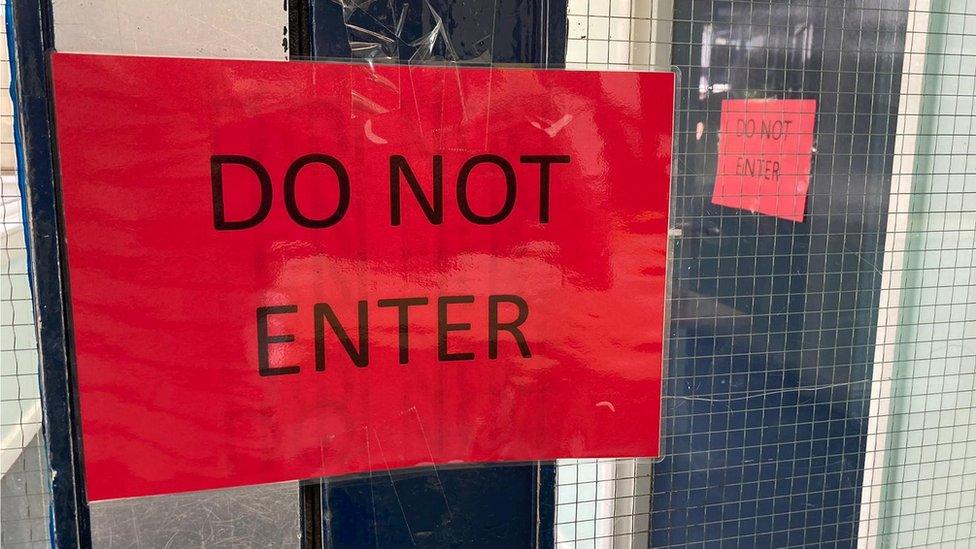
The entire science block, PE facilities and dining hall at the school are shut
Used in the construction of schools from the 1950s to the mid-1990s, Raac can become "crumbly" over time and prone to collapse.
Among the areas closed off to pupils as a result are the science block, PE facilities and canteen while along the corridors support poles are wrapped in hazard tape because of fears the ceiling could fall down.
With some pupils being taken off-site to learn, others are combining reduced hours in school with online learning.
For Year 11 students, at the start of their GCSE year, a marquee has been erected in the grounds to ensure they have face-to-face lessons.
Year 10 pupils are offered about 12 hours of face-to-face classes with the remainder via online sessions while work takes place to create temporary classrooms at the school.
Dr Rebecca Chandler, who has a child in Year 10, said: "We are told every day counts.
"Scalby always tell you that every day missed is a day that's linked to the fact that you could get fewer GCSEs or less points, so it's just a real worry for them."
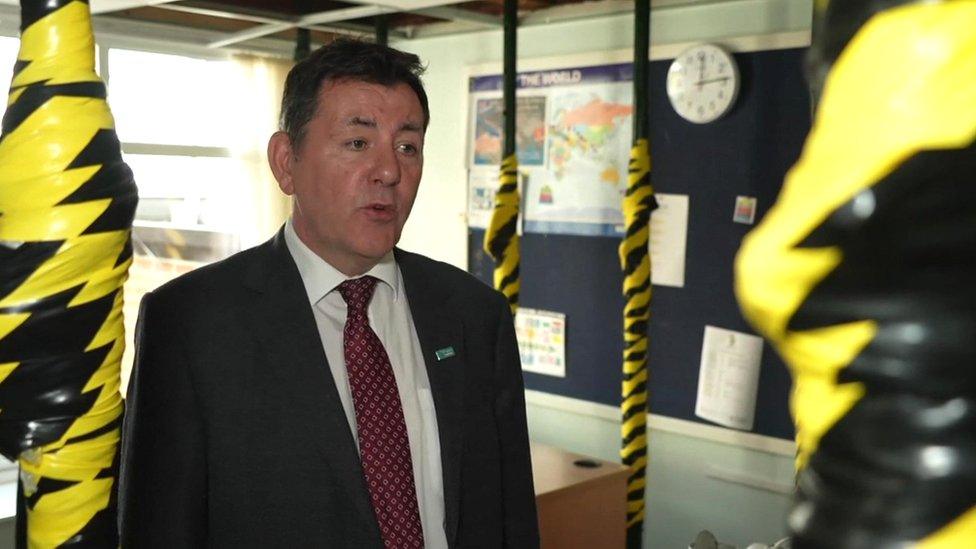
Michael McCluskie, from the trust that runs Scalby School, said 17 classrooms are closed
Scalby School and the Department for Education (DfE) were made aware that the roof was made of Raac in January.
Michael McLuskie is deputy CEO of the Coast and Vale Learning Trust, the academy trust that runs the school.
He said 17 classrooms at the site are out of action and that an order for temporary classrooms has been placed.
Contractors have also begun work on the closed areas of the building.
He said school staff and students had been in a "buoyant mood" after a good set of exam results but now they were worried about the impact of the Raac closures on education.
"Teachers are committed to delivering the highest quality education that they can and it's going to be something that we will monitor on a week by week basis," he said.
"One thing we did ask the DfE to consider is the impact on children's education and what allowances will be made for this."
A spokesperson for the DfE said the government is "continuing to ramp up the surveys of suspected RAAC and where it is identified we are allocating schools with a case worker to help put in mitigations or temporary accommodation as quickly as possible".
"We are incredibly grateful to school and college leaders for their work with us at pace to make sure that where children are affected, disruption is kept to a minimum, and in the even rarer cases where remote learning is required, it is on average for a matter of days not weeks," they added.

Follow BBC Yorkshire on Facebook, external, Twitter, external and Instagram, external. Send your story ideas to yorkslincs.news@bbc.co.uk, external.
Related topics
- Published19 September 2023
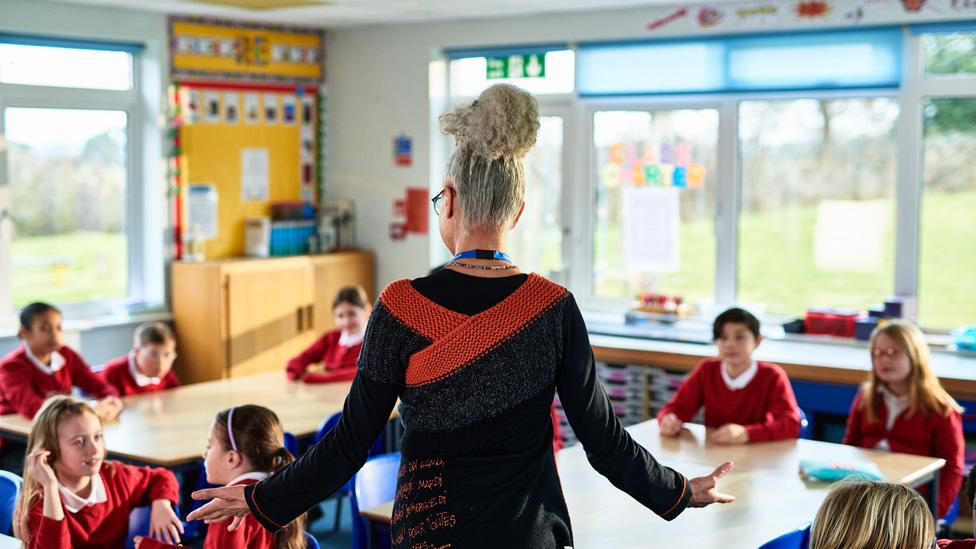
- Published6 September 2023
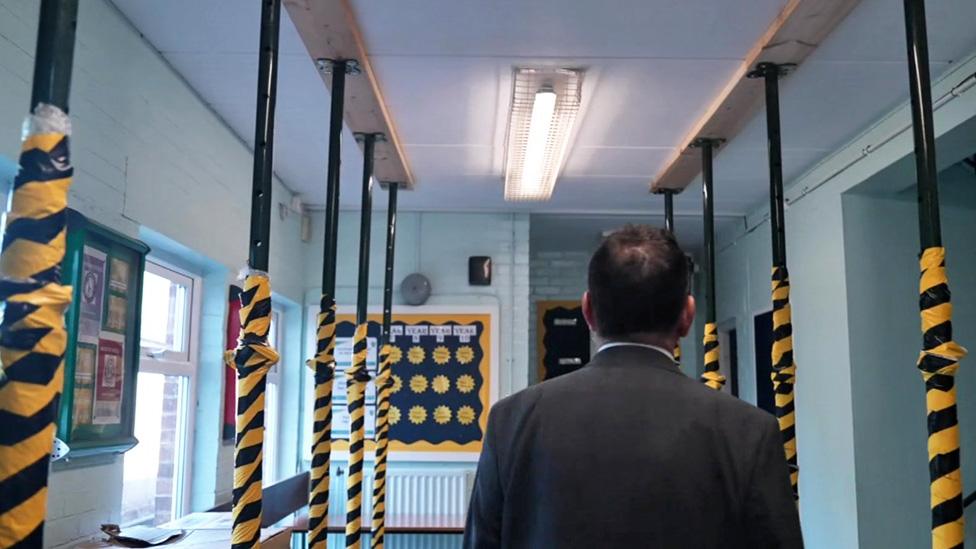
- Published1 September 2023
